Taliban Deploys Heavy Military Equipment To Border With Iran
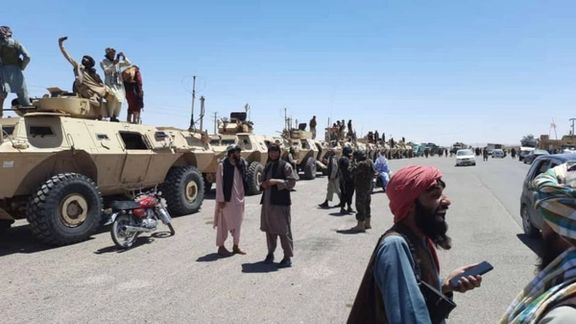
Amid the tensions between Iran and the Taliban over water, the militant group has reportedly deployed a convoy of tanks from Herat to Islam Qala on the border with Iran.

Amid the tensions between Iran and the Taliban over water, the militant group has reportedly deployed a convoy of tanks from Herat to Islam Qala on the border with Iran.
Videos shared on social media show that the Taliban forces are stationed in the region with heavy military equipment.
A video shows a convoy of Taliban tanks moving from Herat towards the Iranian border.
Local sources say the recent tensions between Iran and the Taliban started after they prevented the construction of a road and the installation of barbed wire by the border guards of the Islamic Republic of Iran.
The sources also added that the border forces of the Taliban and border guards of Iran got into a verbal tension last Friday in Islam Qala.
However, the Iranian media wrote on Tuesday evening that the situation at the border is calm.
Tasnim news agency, affiliated with the IRGC, denied any tension between the Taliban and the border guards of the Islamic Republic in the area.
The Taliban authorities have not yet officially commented on sending troops to the border.
The tension at Islam Qala comes as the Taliban and the Iranian border guards clashed on Saturday in Nimroz. Two Iranian guards and one Taliban fighter were killed after shooting broke out near a border post.
It was not immediately clear what had caused the incident, in which several people were also injured, but it came amid tensions over water rights.
Iran has accused Afghanistan's Taliban of violating a 1973 treaty by restricting the flow of water from the Helmand River to Iran's parched eastern regions, an accusation denied by the Taliban.
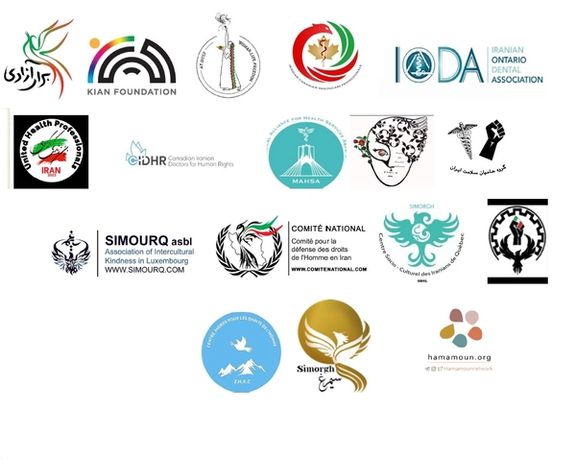
Twenty-six Iranian rights groups expressed fury over the appointment of the Islamic Republic as the chair of the UN Human Rights Council 2023 Social Forum.
A group of doctors, lawyers and civil activists such as the Kian Foundation and the Simourq Association are among the signatories to the letter to Vaclav Balek, the head of the UN Human Rights Council for 2023.
They defiantly condemned the appointment of Iran's UN ambassador Ali Bahraini as the forum’s chair after Vaclav Balek said in a statement earlier this month that he had decided to appoint Bahraini following the receipt of a nomination from regional coordinators.
The forum to be held in Geneva on November 2 and 3 will focus on the contribution of science, technology, and innovation to the promotion of human rights including in the context of post-pandemic recovery.
In their letter, the signatories stated that according to the UN Special Rapporteur on human rights in Iran, the violence of the security forces of the Islamic Republic during the nationwide protests led to the death of hundreds, including dozens of children and women, while hundreds of other protesters were seriously injured, and thousands were arrested.
Earlier, UN Watch launched a petition to the UN Secretary General Antonio Guterres to stop the Islamic Republic from chairing the forum and said there were still six months left to cancel the appointment.
The Islamic Republic was also voted out of the UN Commission on the Status of Women (CSW) in December for policies contrary to the rights of women and girls. It is in addition, also investigating rights abuses in Iran in a special committee, while simultaneously allowing the regime to chair a key rights event.

It is looking ever more likely that the US is stepping up talks to kick-start nuclear talks with Iran despite denials from senior diplomats.
As Brett McGurk, President Biden’s senior Middle East adviser, took a low-profile trip to Oman earlier this month for talks on possible diplomatic outreach to Iran, it seems this is more than ‘talks’.
Neither the US nor Oman made the visit public, suggesting only something as serious as Iran could have called for such secrecy. Though the Biden administration has spoken of their desire to quash Iran’s nuclear program, its softly softly approach has called into question the lengths it will go to.
Oman has recently been pitched as a broker between Iran and Saudi in the lead-up to the détente in March and stands a good chance of holding Iran’s hand as it deals with its biggest enemy.
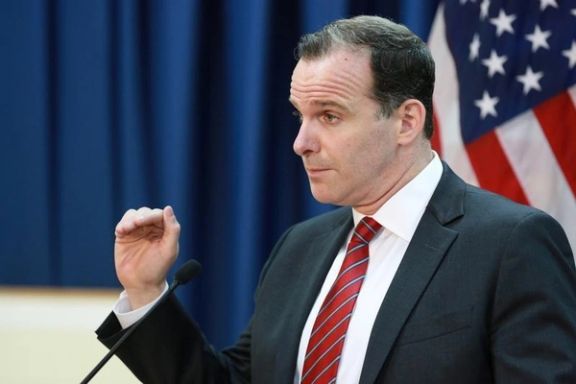
Behind the scenes, Rafael Grossi, Director General of the International Atomic Energy Agency, said on Tuesday that work with Iran on its nuclear enrichment is “a work in progress”. At a press conference in New York, he said the latest report of his visit in March will be released soon but admitted “there are a number of issues we are still working with Iran on, with some we are making progress and with others, no, so it’s an ongoing thing and we haven’t reached an end station”, explaining that it is a “complex” array of issues as the IAEA seeks clarity on three locations being investigated.
However, whether the agency has really won greater oversight powers as agreed in March, is to be seen. The undeclared Marivan site near Abadeh, south of Esfahan, remains a hot topic. He said the IAEA is yet to implement the terms of the joint statement including additional monitoring capabilities for the IAEA.
Speaking to Axios, a White House National Security Council (NSC) spokesperson downplayed the speculation of a new deal circulating in Jerusalem. “There is no US discussion of an interim deal and no discussion of sanctions relief, or closing safeguards cases," the spokesperson said, meanwhile quoting a senior European diplomat who said that the US is indeed working with the Omanis on the Iranian issue.
Keeping mum on talks, the White House NSC spokesperson deferred to ‘security concerns’ as the reason for the lack of transparency, but admitted discussions centered around regional diplomacy, "of which Iran is one aspect.”
Axios claims the Israeli government is concerned about a possible push by the Biden administration for a “freeze for freeze” interim agreement with Iran, which will be subject of discussions for Israeli minister for strategic affairs Ron Dermer and National Security Adviser Tzachi Hanegbi who are expected to discuss these concerns during their visit to the White House tomorrow (Thursday).
Meanwhile, as diplomatic chess pieces continue to shift, the Korea Economic Daily reported on Tuesday that South Korea and the US are discussing ways to release $7 billion in Iranian funds held in South Korea, a South Korean debt for oil imports from Iran due to global sanctions.
Just like the high-profile case of British-Iranian dual-national Nazanin Zaghari-Ratcliffe, held under ransom for a British debt to Iran, it is highly likely the deal has the same premise - cash for hostages. Currently there are three dual nationals with American citizenship and two individuals with US permanent residency held by Iran on trumped-up charges of espionage.
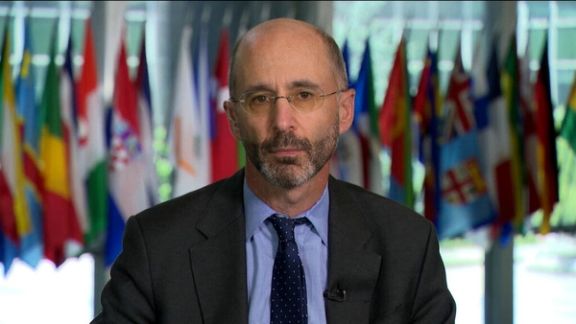
Speaking to NPR this week, the US envoy for Iran, Robert Malley, continued to stress that diplomacy is the Biden administration’s first choice. “I think it's been proven to be the most effective way and the most sustainable way to make sure that Iran doesn't acquire a bomb,” he said, claiming to have forged “a credible diplomatic path”.
In spite of the imbalance of attacks on the US personnel and bases in the Middle East versus retaliatory attacks carried out by the US, he still claims to also have “a credible deterrence path”. As of March, Iran had launched 83 attacks on the US in the likes of Iraq and Syria, with only four military responses, since the start of the Biden administration.
He said: “In other words, [the] president has said all options are on the table. You could imagine what that means. He has said explicitly that the military option will be on the table. It is far from the preferred option, but he will do what it takes to make sure Iran doesn't acquire a bomb. And we hope that we could resolve this through diplomatic means, and we're prepared to go down that path.”
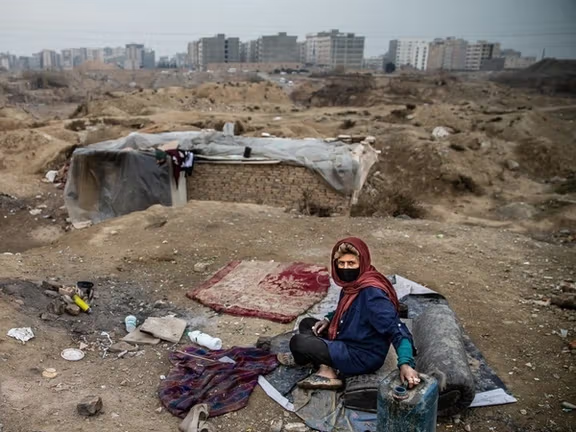
Iran’s Parliament Research Center says the country's poverty rate has reached over 30% since 2018.
According to the report released on Tuesday, in 2021, the population below the absolute poverty line in the country increased to 30.4%.
Based on the report, unemployment, lack of a higher education degree, having children and being a tenant are among the factors that increase poverty in the country.
The report shows that Iran's economic situation has been deteriorating long before the global sanctions hit the country's economy.
According to a report published by ILNA in January, one-third of the country’s population is now living in extreme poverty, after the number almost doubled in one year from 2020 to 2021. However, it is believed that the number could in reality be far higher.
According to official figures released by the interior ministry, around 60 percent of the 84 million Iranians live under the relative poverty line of whom between 20 to 30 million live in "absolute poverty".
Economic failures of the regime are becoming more and more difficult to justify, even given US sanctions. "The main reason for the [economic] problems [in the past ten years] is not just the sanctions. A major part of these were caused by wrong decisions and inefficiency," Supreme leader Ali Khamenei admitted in a speech last year.
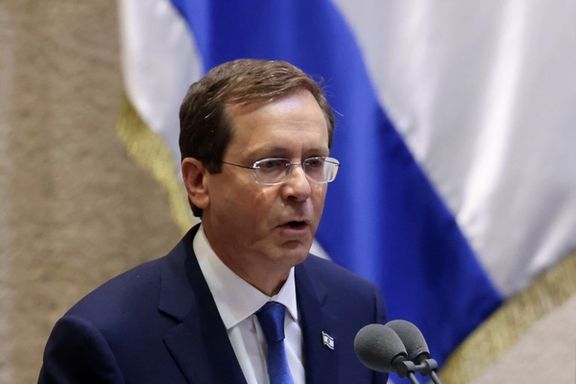
Israeli President Isaac Herzog and his Azerbaijani counterpart Ilham Aliyev discussed the threat of Iran in Baku on Tuesday.
“We look at the regional security structure that is threatened by Iran - a topic that we discussed in depth,” Herzog said following his meeting with Aliyev, “and we expect to develop cooperation between us in many fields.”
Azerbaijan and Israel have been expanding bilateral relations for many years, with Herzog's visit being the latest step. Israel has had an embassy in Baku since 1992 and in March, Azerbaijan opened its own in Tel Aviv.
“Iran is a destabilizing influence in the region that is working continuously to act against Israel and against the alliance of peace and security that is developing in the region, and I will certainly discuss this,” said the Israeli president.
Herzog will participate in a ceremony celebrating Israel's 75th birthday along with the local Jewish community on Wednesday.
Oil and gas rich Azerbaijan gets 69% of its military weapons from Israel, and Israel imports 40% of its oil from the Caucasian state which shares a border with Iran.
It has been a tense few months between Tehran and Baku. Iran angrily reacted to Azerbaijan’s opening an embassy in Tel Aviv in March, accusing it of aiding Israel in its operations against the regime, in addition to relations souring following an armed attack on Azerbaijan’s embassy in Tehran in January. Iran has also carried out military drills over the border in a bid to intimidate its neighbor.
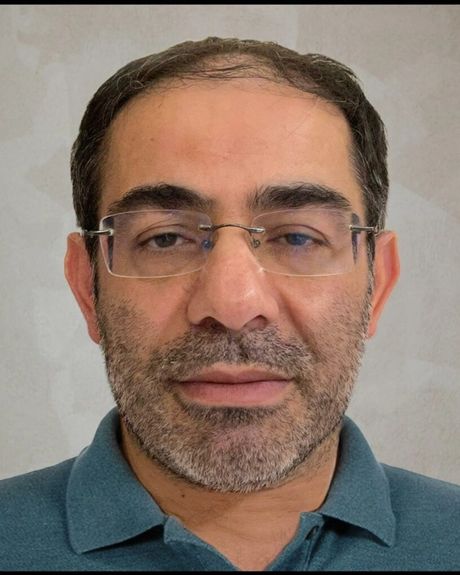
The US State Department is offering a reward of up to $10 million for information on the IRGC financial distributor to Hezbollah, Muhammad Qasir.
The "Reward for Justice" program affiliated with the US State Department said in a statement on Tuesday that the reward will be given for information leading to the disruption of the financial mechanisms of Hezbollah.
“Muhammad Ja’far Qasir, also known as Shaykh Salah and Hossein Gholi, is a key Hezbollah financier, who provides funding for Hezbollah operations through a number of illegal smuggling and procurement activities and other criminal enterprises,” read the statement.
In addition to funding Hezbollah's activities, Qasir channels funds from Iran's Islamic Revolutionary Guard Corps-Qods Force (IRGC-QF).
It is through him that the IRGC-QF is able to hide its involvement in the sale of oil and other extractives, which is a crucial source of revenue for Hezbollah, the IRGC-QF, the brutal regime of Bashar al-Assad, and others.
Qasir leads Hezbollah’s Unit 108, which coordinates closely with the IRGC-QF to facilitate the transfer of weapons, technology, and other support from Syria to Lebanon.
Qasir was designated a Specially Designated Global Terrorist by the US Department of Treasury in May 2018.
All Qasir's properties and interests under US jurisdiction are blocked as a result of this designation, and US citizens are prohibited from engaging in business with Qasir.
Washington has designated Hezbollah as a foreign terrorist organization, which means providing material support or resources to it is illegal.
Tweet unavailable